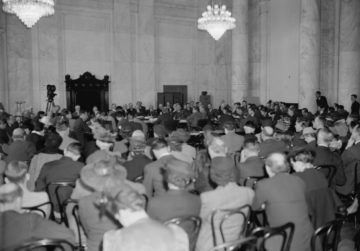 Daniel Bessner in Boston Review:
Daniel Bessner in Boston Review:
Americans live in a very limited democracy. I don’t tell the Federal Reserve to raise interest rates; I don’t decide where the government puts my money; and I sure as hell didn’t vote to go to war in Iraq. Many of the most consequential decisions lie outside the purview of ordinary Americans, who have few means by which to make their voices heard in the corridors of power. This is by design. As numerous historians have shown, in the twentieth century’s second half U.S. elites constructed a state that intentionally restricts the ability of ordinary people to shape policy. Though they might disagree about a lot, the powerful in both political parties agree that, on most things, the public cannot be trusted.
This attitude is especially entrenched when it comes to foreign policy. Since World War II, elites have insisted that U.S. foreign affairs are simply too complex, and the public too volatile and too ignorant, for average Americans to have a say in its formation. As political scientist Gabriel Almond declared in 1950, “the gravest general problem confronting policy-makers is that of the instability of mass moods,” which made it very difficult to promote a stable foreign policy. Moreover, as Almond clarified several years later, when it came to world affairs “often the public is apathetic when it should be concerned, and panicky when it should be calm.” For Almond and many who came after him, a public-directed foreign policy was guaranteed to be a foolish and ineffective one.
More here.
